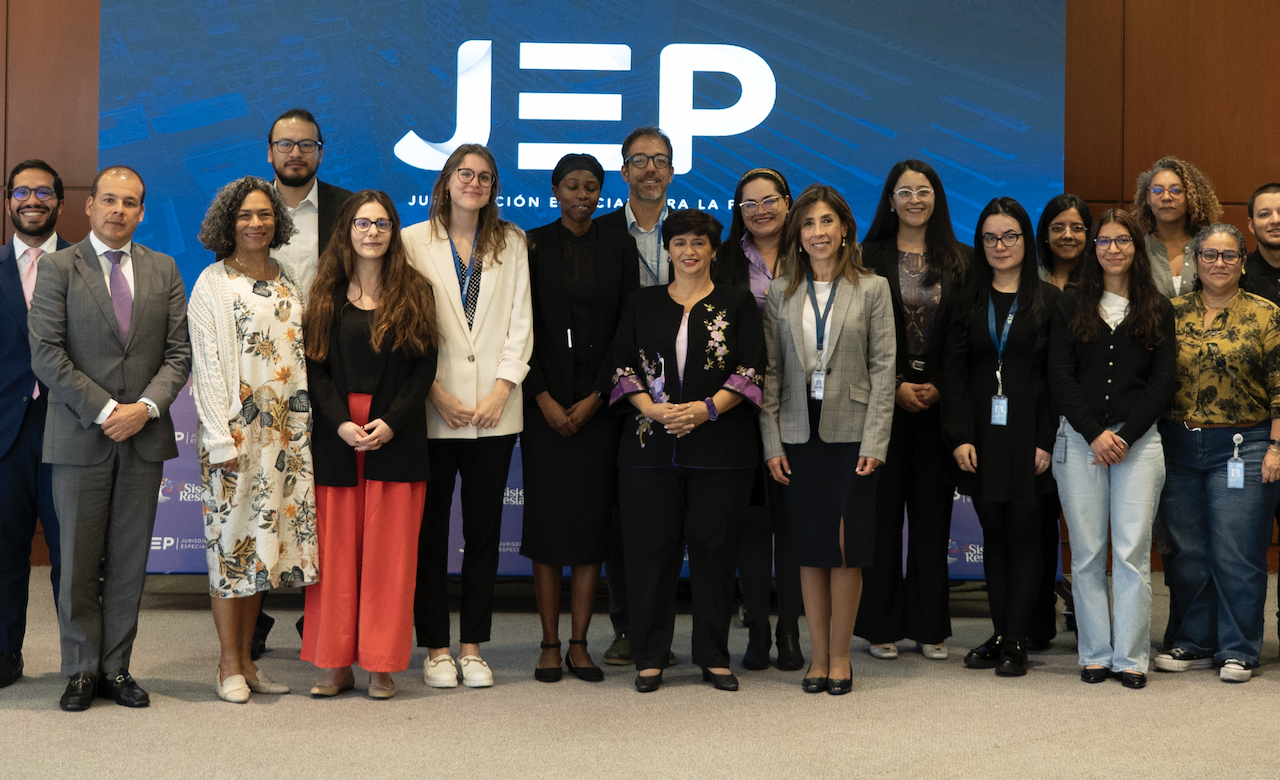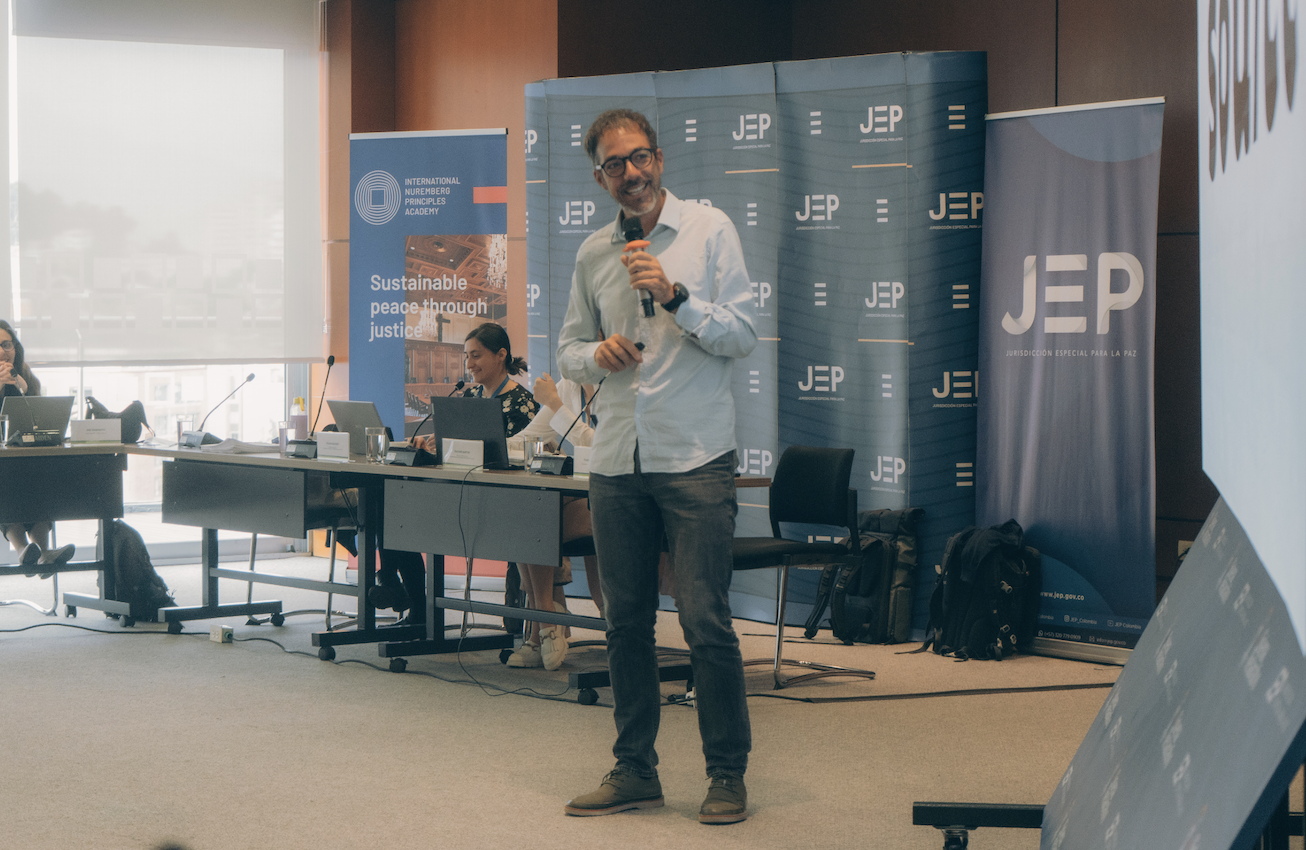Bogotá, July 7-11, 2025 Source International, in collaboration with the Nuremberg Academy and the Special Jurisdiction for Peace (Jurisdicción Especial para la Paz, JEP), took part in a key international exchange in Bogotá aimed at strengthening capacity to address environmental crimes linked to Colombia’s armed conflict.
Our founder and director, Flaviano Bianchini, joined a program of training and knowledge-sharing with Colombian judges, prosecutors, and technical experts. The focus of the program was developing tools and methodologies to investigate crimes such as illegal deforestation, illicit mining, wildlife trafficking, and pollution - environmental violations deeply connected to the country’s 50 years long conflict.
In 2025, we launched a partnership with the Nuremberg Academy to deliver specialized training to the JEP, the transitional tribunal created under Colombia’s 2016 peace accords.
As a matter of fact, Colombia faces one of the highest deforestation rates in the world, with over 3,000 km² of forest lost annually due to illegal mining, logging, cattle ranching, and coca cultivation - activities which are often controlled by armed groups and criminal networks. In regions like the Chocó and the Amazon, environmental exploitation fuels violence and weakens human rights protections.

The Colombian transitional justice process recognizes environmental harm as a critical component of conflict-related injustice. However, many legal professionals still lack the tools to investigate and prosecute environmental crimes under International Law.
Source International and the Nuremberg Academy are working together to train JEP judges and prosecutors on environmental crimes linked to the armed conflict; provide practical tools for investigation, such as forensic techniques, evidence collection protocols, case law analysis, and international legal standards; and strengthen connections between the Colombian judiciary and global experts in environmental and human rights law.
The Bogotá event, held from July 7 to 11, was designed as a model for integrating environmental justice into transitional tribunals, ensuring that crimes against nature do not go unpunished and that peacebuilding includes ecological restoration.
“The JEP is already a landmark in history - commented Flaviano Bianchini -. It is the first tribunal to investigate and judge all crimes committed during an armed conflict, regardless of who committed them. Now, it is taking another significant step forward by investigating environmental crimes as well. It is a true honour to be part of this historic process”.

During Colombia’s armed conflict, a staggering number of environmental crimes were committed: “Paramilitary and guerrilla groups financed their operations through illegal mining, logging, and coca cultivation; entire communities were forcibly displaced to make way for coal and gold mining projects. Meanwhile, the Colombian government, with support from the United States, conducted widespread glyphosate spraying to eradicate coca crops, causing severe harm to both the environment and local farming communities”.
“Now, for the first time in history, these environmental crimes are being formally investigated by the Special Jurisdiction for Peace and this marks a groundbreaking step in transitional justice - concludes Flaviano -. We have worked to train local prosecutors, magistrates, and judges in how to integrate scientific evidence into these investigations, ensuring that justice is not only served, but done so with rigor, fairness, and scientific integrity”.